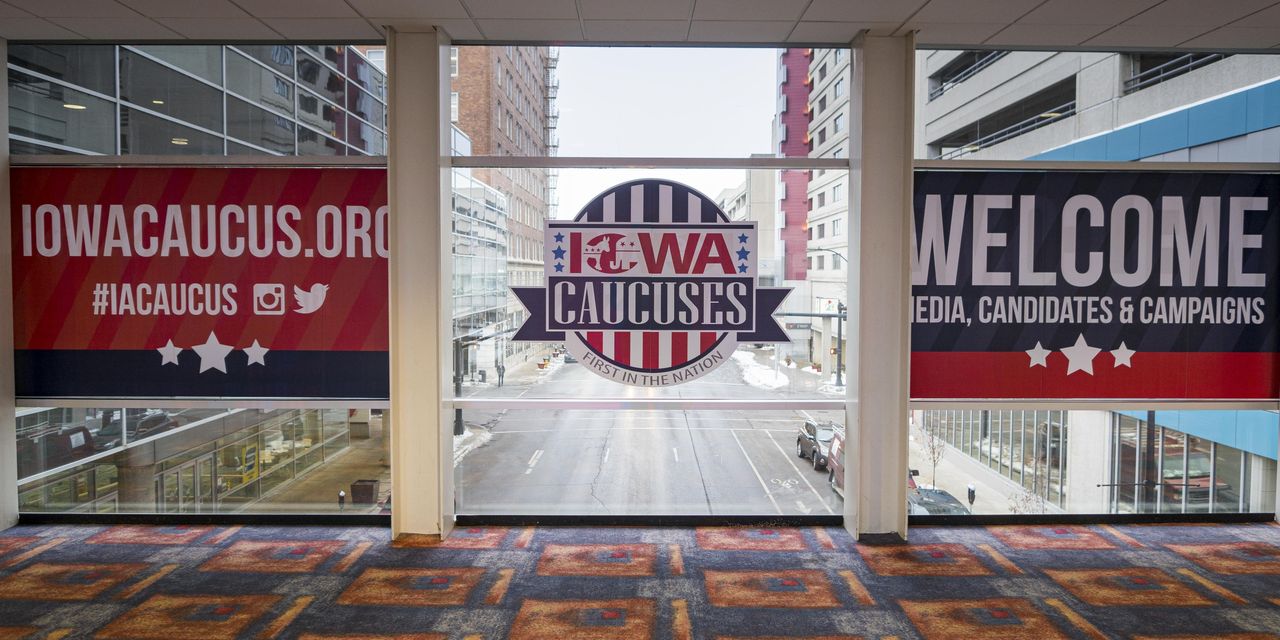Iowa Caucuses to Be Testing Ground for Efforts to Protect Voting From Hackers
With Iowans kicking off voting in the 2020 presidential election season, the race is also on to protect the vote from cyberattacks and other intrusions.
Precautions being taken to secure elections range from revamped electronic voting systems backed up by paper ballots to having cybersecurity experts on standby on voting days. Election officials from across the country gathering this weekend in Washington are discussing contingency planning and other safeguard measures for the 2020 voting season.
Monday’s caucuses in Iowa and New Hampshire’s primary the following week present a test for the overhaul in voting security taken since 2016, when, U.S. intelligence agencies say, Russia deployed hackers and internet trolls to interfere in the presidential election. While those intelligence assessments say no votes were tampered with, the agencies warn that Russia, China, Iran and other foreign adversaries are seeking new ways to interfere.
On Alert
Some election-security measures taken by many states since 2016:
- Replacing paperless voting machines with ones that provide paper records.
- Plans to quickly flag disinformation to social-media companies
- Voting-day war rooms for election officials for rapid response to problems.
- Testing and patching of election systems by security experts.
“We’re planning as if they’re coming back,” Chris Krebs, the top cybersecurity official at the Department of Homeland Security, said after meeting with election officials from across the country in Washington on Thursday. “It’s not just about Russia. It’s about anyone else that may want to get into this space.”
For this election cycle, Congress is spending more on election security than it has in over a decade—though only in the hundreds of millions compared with the more than $3 billion spent on new voting equipment and other improvements after ballot-counting issues plagued the 2000 U.S. presidential election. Money is going to new voting machines. Consultants to handle cybersecurity and combat disinformation on social media are now standard for campaigns, political parties and many state and local election offices.
The Democratic National Committee is sending a team of cybersecurity and disinformation experts to Iowa to be on hand during the caucuses. “It’s certainly one of the highest-stakes milestones we’ve had as we head into voting,” said Nellwyn Thomas, the chief technology officer for the committee.
While the systems used to tally votes must be secured against possible cyber threats, disinformation ranks among the top concerns for experts because it is relatively easy to spread, through social media or robocalls and texts.
"One of the easiest weapons for bad actors is spreading lies or exaggerations or misrepresentations,” said the DNC’s Ms. Thomas.
As a countermeasure, state election officials across the country are running a social-media campaign directing voters looking for information on how to vote to reliable sources such as government websites. The campaign uses the hashtag #TrustedInfo2020.

Photo:
Joshua Lott/Getty Images
“The last thing we need is someone out there trying to mislead voters by telling them the voting hours are something different than they really are,” said Paul Pate, Iowa’s top election official.
Social-media companies are also trying to squelch misleading information about the elections, by hiring more fact-checkers and making it easier to report false information, among other steps, though the companies vary on how they define misleading information.
For all the new voting systems and technological upgrades, election officials are relying on a traditional backup—paper.
In Iowa, both parties (Republicans are caucusing too even though President Trump has no strong challenger there) will use smartphone apps to count the votes of caucus-goers at thousands of sites. Some security experts have said that this technological method could be a problem because it is difficult to ensure that all the organizers’ personal smartphones are properly protected.
Both parties said that those concerns are overblown, saying that paper records of the votes would be kept as backup and, in case of a glitch, caucus workers could phone in the results.
“We have backups on backups on backups,” said Iowa Republican Party spokesman Aaron Britt. The parties’ caucus apps are from different developers that the parties have declined to identify, citing security concerns.
In the caucuses, party members physically separate into different groups according to which candidate they are backing. This year the Iowa Democratic Party will ask each individual voter to write down their choice on a paper voter card officially called a presidential preference card; in the past only the group total was recorded on paper. This will allow the party to conduct a full recount if needed.
In New Hampshire, which holds its primary Feb. 11, voters typically fill out paper ballots that voting machines then scan with the original saved for record-keeping. Most, but not all, states have voting machines with paper ballot backups, providing a record that could be reviewed in the event of hacking or a technical glitch.
Given security concerns, the paperless voting systems used in some places are now on the decline. In 2016, some 20% of voters cast ballots on paperless systems, according to a report by the Brennan Center for Justice at New York University. This year, those paperless systems cover roughly 12% of voters, the report said.
SHARE YOUR THOUGHTS
How do you think election officials and political parties have handled cybersecurity since 2016? Join the conversation below.
Copyright ©2019 Dow Jones & Company, Inc. All Rights Reserved. 87990cbe856818d5eddac44c7b1cdeb8








Gloss